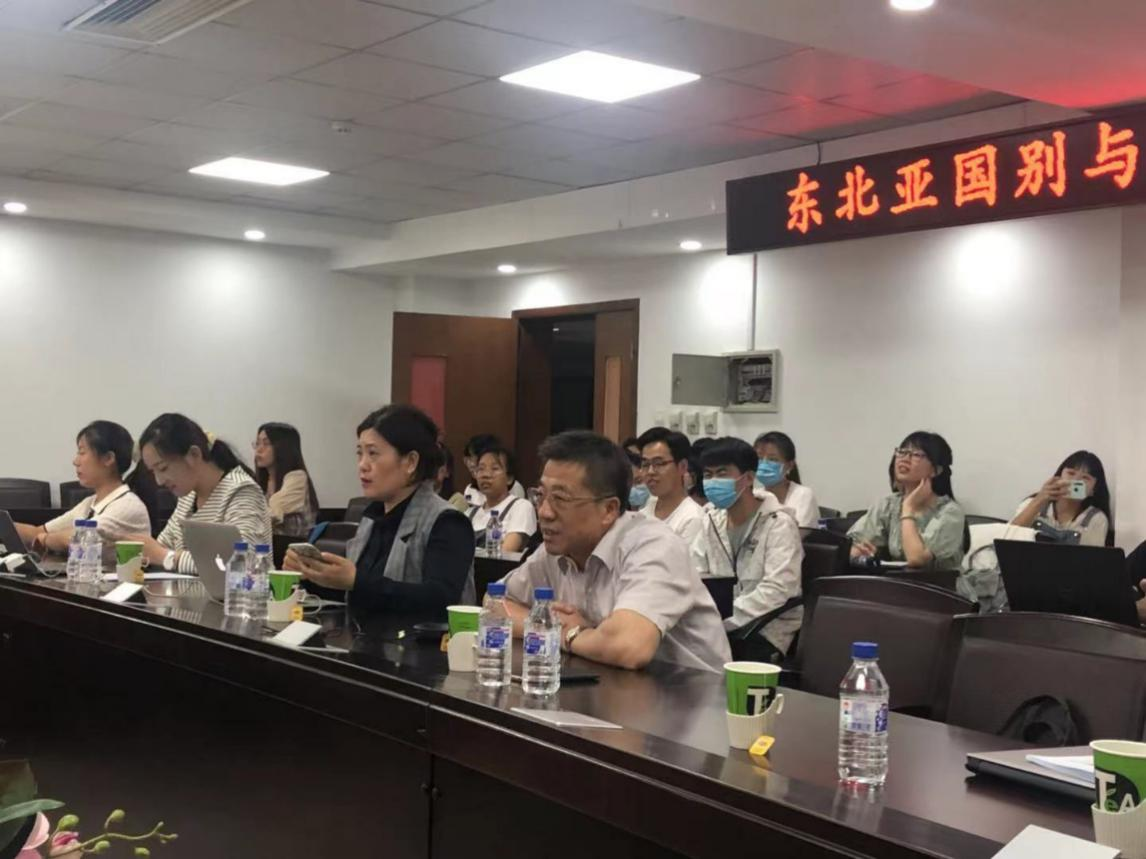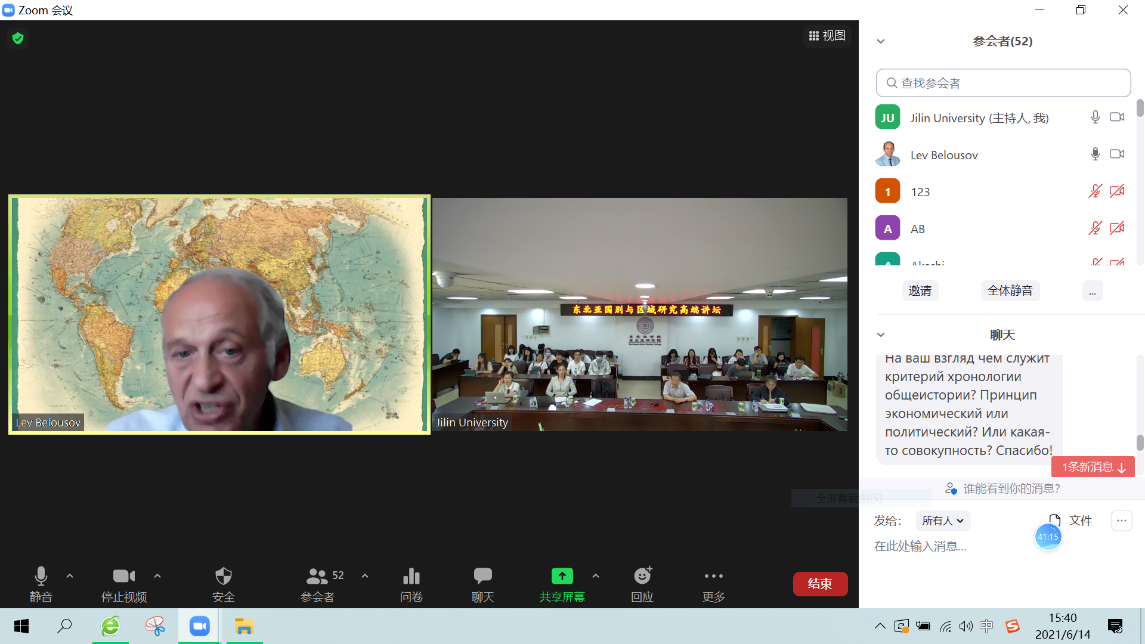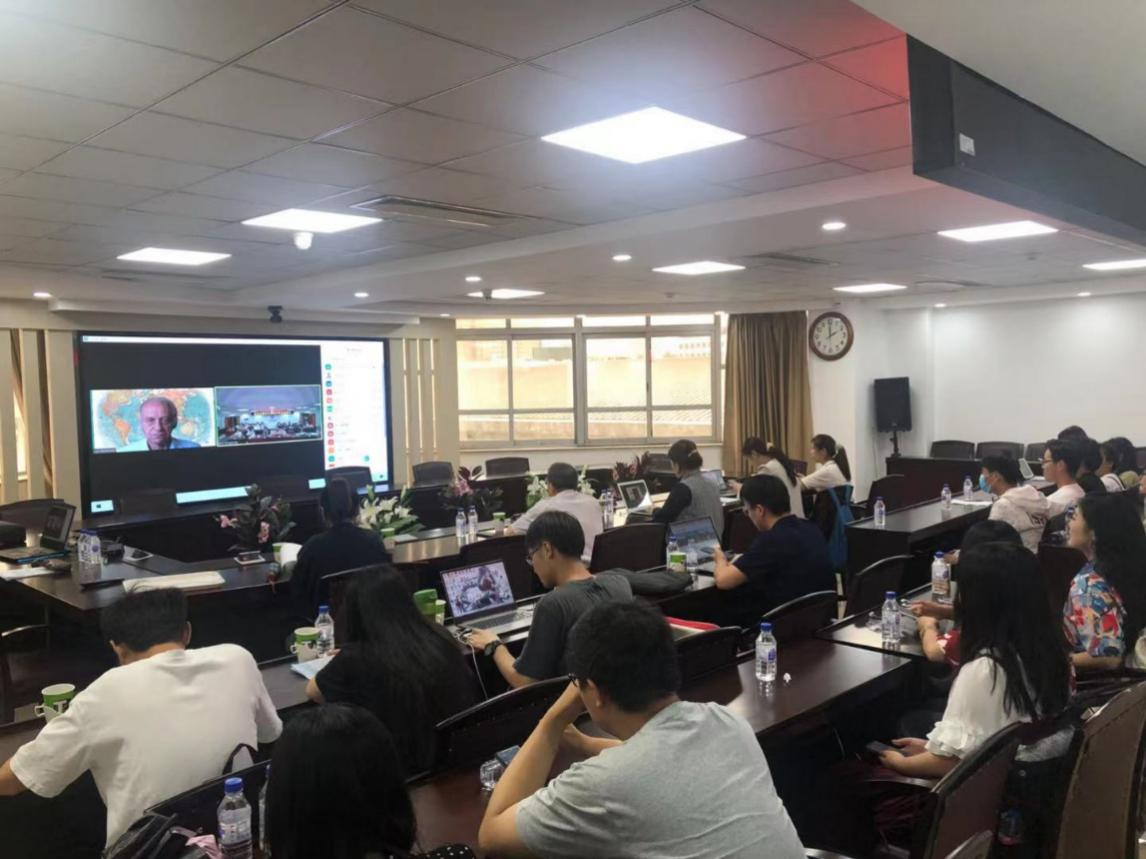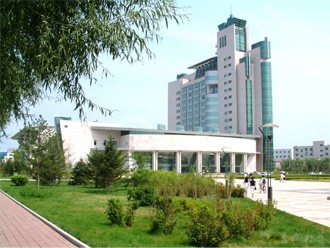On June 14th, 2021, Concept and Periodization: Methodological Issues in World History Teaching of the High-end Symposium on Northeast Asia International and Regional Studies was successfully held at Jilin University. This lecture was jointly organized by the Northeast Asian Research Center of Jilin University, the Northeast Asian Studies College of Jilin University and the Jilin University-Moscow State University History Research Center, and was carried out online and offline at the same time. The Northeast Asian Research Center invited Professor Lev Sergeyevich Belousov (Лев Сергеевич Белоусов), Head of the Department of History of Moscow State University, to take Chinese students and teachers on a fascinating academic tour. The lecture was hosted by Zhang Guangxiang, Director of the Institute for History and Culture of Northeast Asian Research Center in Jilin University and distinguished professor of Kuang Yaming Distinguished Professor of Jilin University. At the beginning of the lecture, Professor Zhang Guangxiang, on behalf of Professor Wu Hao, Deputy Director of the Northeast Asian Research Center of Jilin University, expressed his warm welcome and high gratitude to Academician Belousov.
Professor Belousov is a leading authority on Italian history in Russia, and as a member of the Russian Academy of Education, he has long been concerned with the concept of history and historical staging in history textbooks. In his lecture, Professor Belousov questioned the "pre-modern history, modern history and contemporary history" staging in textbooks from the perspective of the development of human history as a whole, and proposed a new perspective on the staging of world history. First, he argues that the "early pre-modern period" began in the early 17th century and ended with the French Revolution. The next "pre-modern era" continues until the end of World War I, when the October Revolution in Russia opened a gap in the capitalist world system.Second, he creates the concept of "late pre-modern period" based on the concept of "early pre-modern period", arguing that most of the 20th century is not what we usually think of as "modern", but is a natural extension of "pre-modern". The Soviet Union's socialist system attempted to truncate the development of capitalism and ultimately failed, but facilitated the transformation of the world capitalist system. Again, he argues that true "contemporary history" did not originate after the end of World War II, but emerged between the 1970s and 1980s and the early 1990s, when the collapse of the Soviet socialist system and changes within capitalism occurred almost simultaneously, and after which the entire world entered a completely new historical phase - contemporary history. During this period, the information society, globalization, the communication revolution, social networks, the digital economy, international terrorism, and other factors led to a significant difference in the face of contemporary society. Finally, he suggested that the traditional staging of world history has become obsolete and that the concept of "modern history" should be abandoned in order to grasp the characteristics of the world historical process from its essence. Of course, Professor Belousov also pointed out that his views are controversial, and he hoped that the academic community could further discuss this issue. After the lecture, Professor Belousov enthusiastically answered questions for the young students and teachers, and gave high praise to the level of questions.
At the end of the event, Professor Zhang Guangxiang said that Academician Belousov's lecture and its series of research were of great value, which helped the Russian history team of Jilin University to clarify research ideas and explore new research perspectives. Professor Zhang Guangxiang conveyed the sincere invitation of Deputy Director Wu Hao, hoping that Professor Belousov and his team can visit Jilin University after the epidemic, continue the friendship between the two universities, and make a historical chapter together.



